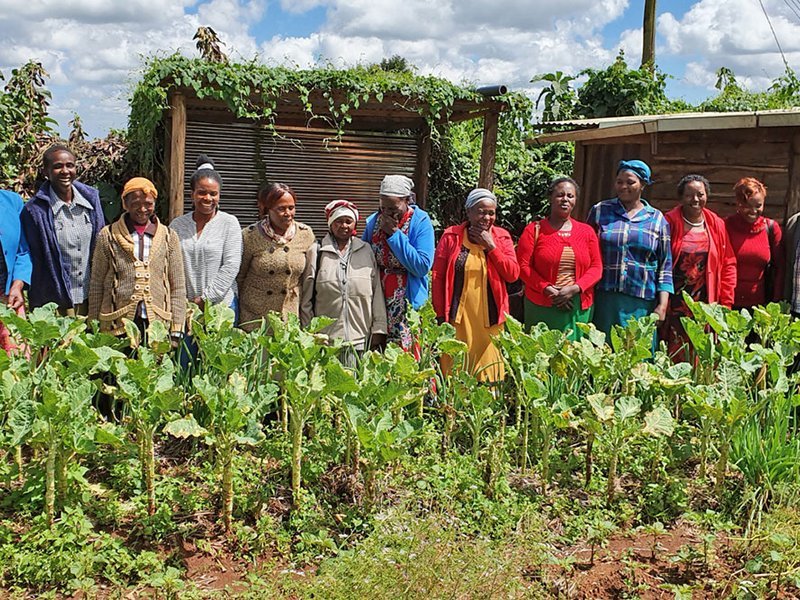More leadership positions for women
On March 6, 2021, the heads of the three United Nations’ food agencies said that it is important for more women to hold leadership positions with increased decision-making power,otherwise, hunger and famine will persist and there will be unequal recovery from the COVID-19 pandemic.
Summary
They said this ahead of their joint International Women’s Day event which will be held on 8 March.
The event, co-organised by the United Nations Food and Agriculture Organization (FAO), the International Fund for Agricultural Development (IFAD) and the World Food Programme (WFP), will focus on women’s leadership in efforts to build back better from the pandemic.Dubbed Women’s leadership in a COVID-19 world for a better future, the event will be webcast on Monday, 8 March at 14:30 – 16:00 CET. Register here.
The event will feature various participants who will reflect on how women leaders can bring their experiences, perspectives and skills to ensure equitable and sustainable pandemic response and recovery.
Furthermore, it will focus global attention on the vital role that empowered female farmers, entrepreneurs and leaders need to play so that women can contribute on equal terms to the recovery from the COVID-19 pandemicand in creating an environment to eliminate poverty, enhance productivity, and improve food security and nutrition.
“Women and girls can play a crucial role in the response to the COVID-19 pandemic and in particular in transforming our agri-food systems. We all need to work together to spark the necessary changes to empower women and girls, particularly those in rural areas,” said FAO Director-General QU Dongyu.
“It is essential that women are not only in more leadership positions, but that they are consulted and listened to, and integrated in all spheres and stages of pandemic response and recovery,” said Gilbert F. Houngbo, President of IFAD. “Investing in rural women’s leadership and involving them more in creating our post-COVID future is critical to ensure their perspectives and needs are adequately considered, so that we can build back better food systems where there is equal access to nutritious food and decent livelihoods.”
Research shows that if women farmers had the same access to productive resources as men, they could increase yields by 20 to 30 percent and total agricultural output by 2.5 to 4 percent, lifting 100 to 150 million people out of hunger.
“We know from our work around the world that when women and girls have better access to information, resources and economic opportunities, and are free to make their own decisions, hunger rates fall and nutrition improves not only for themselves but also their families, communities and countries,” said David Beasley, Executive Director of WFP.
ALSO READ ABOUT: cooperatives-continue-receiving-low-milk-supply-due-to-covid-19-pandemic
Women’s leadership is particularly important in rural areas of developing countries, where the voices of the women and girls who live there are often overlooked. Sixty percent of women in South Asia and sub-Saharan Africa work in agriculture – yet they have less access to resources and services than men, including land, finance, training, inputs and equipment.
In addition to their agricultural work, women are overburdened with domestic chores and caring for their families – roles that have increased during the COVID-19 pandemic. At the same time, women are more negatively affected by the social and economic impacts of the COVID-19 pandemic, including losing livelihoods and experiencing decreases in their personal incomes.
Ensuring that women have a greater voice is not only a matter of gender equality. Women leaders can advocate for women to have better access to and control over assets and productive inputs, thus boosting their productivity and incomes, leading to food security and increasing their employment opportunities and real wages.
How the organisations have worked towards empowering women
FAO works to strengthen rural women’s engagement and leadership in agri-food systems. It also engages with farmers’ organisations to ensure that rural women’s voices are heard and promotes gender-transformative approaches to challenge unfair socio-cultural norms in rural communities.
Moreover, FAO supports governments to adopt policies and strategies addressing the needs and aspirations of rural women and girls, enabling them to participate in decision-making and assume leadership positions.
Since 2009, IFAD has implemented a ‘household methodologies’ approach to reinforce the equal role and decision-making capacity of women within households, groups and communities.
WFP’s work in achieving gender equality begins at school where support or implementation of School Feeding programmes in more than 70 countries contributes to increased school attendance of girls. This provides them greater access to education, reduces the risk of child marriage and other forms of gender-based violence, and increases future livelihood and leadership opportunities for girls.
ALSO READ ABOUT: https: how-can-we-stop-farmers-becoming-extinct/



